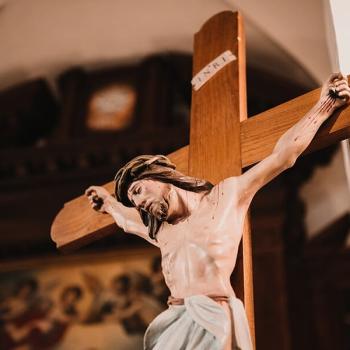When I want to get under the surface of things, I re-read the “proverbios” of the early 20th c. Spanish poet, Antonio Machado, and those of the later 20th c. Argentine poet, Antonio Porchia. Both men lived simply, loved deeply, and are cherished still as poets in their respective homelands. I don’t know if Porchia ever read Machado. But in any case, their sensibilities were strikingly similar. Their proverbs command my meditative attention. They snap me out of my assumptions, lead me out of the realm of the obvious. Porchia’s life-work, VOCES (Voices), is a slim volume of proverbs that I thought might take an hour to read when I first discovered it a few months ago. I was surprised to find myself lingering on each line for a long time. I discovered Machado years ago, but keep returning to his poetry and being led to new depths through it. I use the works of these poets in the courses and seminars that I teach, as invitations into the subtler dimensions of the subject matter. Here are some of my favorites, with my comments:
Waking Up
Both poets invite the reader into awareness of another dimension that co-exists with
our assumptions about reality. They invite us to see with the inner eye of awakened consciousness. Machado celebrates the honey of flowers we can see and smell, but then invites us to taste the concentrated sweetness of an experience beyond the senses. Porchia invites us to give up seeing what we define as a cloud when we see a cloud – and experience it as it is in itself. Just because we rise from sleep doesn’t mean we’re really awake: this teaching is found in all the world’s great spiritual traditions.
Tras
el vivir y el soñar está
lo que más importa: despertar.
After
living and dreaming comes
what matters most: waking
up. — Machado
“Buena es el agua y la sed;
buena es la sombra y el sol;
la miel de flor de romero,
la miel de campo sin flor.”
Good is water and thirst; good is shade and sunlight; the honey of rosemary
flowers, the honey of a land without
flowers. – Machado
Cuando creao que la piedra es piedra,
que la nube es nube, me hallo en un estado de inconsciencia.
When I believe that the stone is stone
and the cloud cloud, I am in a state of unconsciousness. — Porchia
The Way
Creativity, discovery, freedom, individuation: they spring from the uncertain nature of nature itself. Ours is not a “purpose-driven life”, but rather a “possibility-driven
life”. Jesus said “I am the way”, but there is no map for a road that is walked on water. He was the way, and you are the way, and I am the way – and we make that road, as Machado said, by walking.
Dirán que andas por un camino
equivocado, si andas por tu camino.
They’ll say you’re walking down the
wrong path, if you’re walking down your path. — Porchia
Caminante, son tus huellas
el camino, y nada más;
caminante, no hay camino,
se hace camino al andar.
Al andar se hace camino,
y al volver la vista atrás
se ve la senda que nunca
se ha de volver a pisar.
Caminante, no hay camino,
sino estelas en la mar.
Wayfarer, the only way
Is your footsteps, there is no other.
Wayfarer, there is no way,
You make the way as you go. (You make the road by walking.)
As you go, you make the way
And stopping to look behind,
You see the path that your feet
Will never travel again.
Wayfarer, there is no way –
Only foam trails on the sea. — Machado
¿Para qué llamar caminos
a los surcos del azar?
Todo el que camina anda,
Como Jesús, sobre el mar.
Why
give the name of roads
To
the furrows of chance?
Anyone
journeying walks
Like
Jesus on the sea. – Machado
The Constitution of Humanity
I don’t know if Porchia made the connection when he wrote it, but one of his proverbs seems to encapsulate the fundamental insight of the framers of the United States Constitution. America’s founders held a paradoxical view of human nature. They understood that we are always corruptible, while at the same time trusting our essential goodness. They designed a form of government that presumed that the common man was exalted enough to choose those who would lead the state, while creating a system of checks and balances to power so that our baser instincts would be domesticated. They believed human evil could not be eliminated, but could be
tamed, so that our creative human potential could be be freely expressed. In one pithy line of poetry, Porchia presents a constitution for humanity:
Lo indomesticable del hombre, no es lo
malo que hay en él: es lo bueno.
That in man which cannot be domesticated
is not his evil but his goodness.
— Porchia
Seeking the Other
When Moses asked the burning bush to identify itself, the divine in the flame replied, “I AM THAT I AM.” That enigmatic encounter illustrates the attitude of awe before the ineffable Ultimate Reality, expressed variously in all the world’s religions. Humility before the utter otherness of God extends to reverence of one person for the holy, wholly otherness of another.
No es el yo fundamental
eso que busca el poeta,
sino el tú esencial.
It is not the fundamental
“I” that the poet seeks, but the essential “you”. – Machado
Enseña el Cristo: a
tu prójimo
Amarás como a ti mismo,
Mas nunca olvides que es otro.
Dijo otra verdad:
Busca el tú
que nunca es tuyo
Ni puede serlo jamás.
Christ
teaches love your neighbor
As yourself. But never forget
He is someone else.
He spoke another truth:
Seek the you that is never yours
And can never be. – Machado
Trátame como debes tratarme, no como merezco
ser tratado.
Treat me as you should treat me, not as
I should be treated. – Porchia
Qué te he dado, lo sé. Qué has recibido, no lo sé.
I know what I have given you. I do not know what you have received. – Porchia
Above all, these two poets felt compelled to lift up the transcendent worth of humanity, by artfully denying that anyone can define, fully comprehend, or control another.
JIM BURKLO
Website: JIMBURKLO.COM Weblog: MUSINGS Follow me on twitter: @jtburklo
See my GUIDE to my books, “musings”, and other writings
Associate Dean of Religious Life, University of Southern California
















